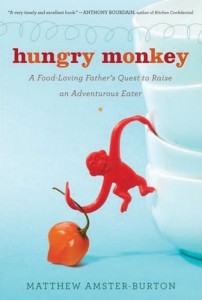|
|
August 8, 2010
 "The Immortality of Influence: We Can Build the Best Minds of the Next Generation" by Salome Thomas-El With the new school year just weeks away, I wanted to interview a superstar educator. Someone who could inspire every adult who lives or works with kids. And we all need inspiration and motivation from time to time, right? Because kids, especially tweens and teens, aren’t always easy to hang in there with. To find the right guest, I went to my local Inspiration and Resource Department (aka Twitter) and I found the man for the job — Salome Thomas-El. He goes by the name of Principal El and for 20 years he’s walked the walk by influencing his students and helping them reach their full potential. Know how he does it? By encouraging kids, non-stop. As Principal El puts it, “I keep letting them know that I believe in them until they’re ready to believe in themselves.”
Principal EL is a regular contributor on “The Dr. Oz Show.” He’s also the author of two best-selling books, I Choose to Stay: A Black Teacher Refuses to Desert the Inner City, about his teaching experience in Philadelphia, and his new book, The Immortality of Influence: We Can build the Best Minds of the Next Generation, which stresses the importance of mentoring, parenting and service to others.
Principal El has a life-long commitment to answering this basic question, “How do we ensure that every child achieves his or her greatest potential?” This question lies at the heart of the current national dialogue on education policy, the day in-and-day out work of school personnel, and the hopes of every parent.
As a parent, you are your child’s #1 Influencer. If you’re ready to have your batteries recharged for all the challenges the new school year will bring, then let’s talk about how to best use the tremendous influence you have with your children. Listen to my interview with Principal El right here:
[QUICKTIME http://www.anniefox.com/podcast/FC017.m4a 300 300 false true]
If you have iTunes, you can subscribe to this podcast in the iTunes Store.
Or, you can download an MP3 version here.
Upcoming guests include:
Dr. Elizabeth J. Meyer, author of Gender, Bullying and Harassment: Strategies to End Sexism and Homophobia in Schools
Dr. Leah Klungness and Rachel Sarah co-founders of SingleMommyhood.com. Dr. Leah is the co-author of The Complete Single Mother. Rachel is the author of Single Mom Seeking: Playdates, Blind dates, and Other Dispatches from the Dating World.
David McQueen, international speaker empowering adults and youth alike on subjects such as leadership, careers and communication skills.
Dr. Karyn Purvis, co-author (with Dr. David Cross, Wendy Lyons Sunshine) of The Connected Child: Bring hope and healing to your adoptive family

May 3, 2010
By Amy McCready
Parenting expert Amy McCready is the Founder of Positive Parenting Solutions. which offers free training resources. She created the celebrated Positive Parenting Solutions Online parenting course that empowers parents of toddlers to teens with the skills to correct misbehaviors permanently without nagging, reminding or yelling. Amy is a Positive Discipline Parent Educator and most importantly – a mom of two sons ages 12 and 14.
 Appreciate the moments of calm and you catch 'em in the act of doing something right Parents want to have close relationships with their children, but many wonder if that’s even possible as their once sweet, loving, cuddly child enters adolescence. Suddenly, your son is more interested in peers than spending time with the family, your daughter may be showing more rebellious behavior, and now, instead of being the one they turn to for advice, you don’t know a thing!
While scary for parents, the normal individualization process during the tween and teen years doesn’t have to involve power struggles and hard feelings if parents avoid these three common parenting mistakes:
1. Too much “ordering, correcting & directing”: No one wants to be bossed around and “ordering, correcting and directing” is a guaranteed way to get your tween or teen to shut down. Parents wouldn’t order, correct and direct friends or co-workers, yet many will bark orders in an attempt to demand compliance from kids. If we expect kids to respect parents, parents have to reciprocate with respectful communication.
Instead, use a calm voice and make respectful and reasonable requests. Ask yourself the question… “How would I feel if someone made this same request of me?” A calm and respectful approach doesn’t mean that kids aren’t held accountable for their behavior. Parents can hold kids accountable in a way that fosters a mutually respectful relationship and empowers kids to learn from their choices.
Instead of “ordering” – try “inviting cooperation”… “I’m slammed with work this evening. Anything you can do to help with the dinner clean up would really make a difference for me tonight.” Nine times out of ten – the teen will lend a hand!
2. Exerting too much control: Part of the normal development process for teens is to separate from us – but that invokes fear in most parents and they respond by “clamping down.” Instead of respecting the child’s need for greater autonomy – parents attempt to exert more control, which escalates power struggles.
Recognize your teen’s growing need for power and autonomy. Instead of “clamping down,” look for opportunities to give your teen MORE responsibility and decision making opportunities. Involve your teen in family decisions as appropriate.
Be reasonable with curfews and privileges. Demonstrate faith in your teen by giving a little more rope – but within your comfort zone. Be very clear about the responsibilities that accompany his or her privileges and be sure to reveal consequences in advance. That way your child will be perfectly clear about what will happen if he or she decides to test your limits. As the late parenting educator and author, H. Stephen Glenn said, “Children need enough rope to get rope burn, but not enough to hang themselves.”
3. Not being ON their team. Most teens feel that their parents are against them – not with them. When parents order, direct and correct too much, interrogate them about every little thing, or try to exert too much control – it invites power struggles and reinforces the feeling that we’re against them. When teens feel that parents are ON their team, they are more likely to communicate honestly and openly and may actually want to spend time with the family!
Show that you’re ON their team by getting into their world. Spend one-on-one time with them – on a daily basis – doing what THEY like to do. Parents often perceive that teens don’t want to spend time with parents – but they do! Taking 10 minutes, one or two times a day to talk, hang out, download music – or whatever your teen enjoys – increases your emotional connection and works wonders in keeping lines of communication open. It reinforces that you are “on her team” – not against her.

April 26, 2010
 "Hungry Monkey – A food loving father's quest to raise an adventurous eater" by Matthew Amster-Burton My mom did just fine in the kitchen. Though she had a limited repertoire and the only spices she owned were salt, pepper, paprika, garlic powder and cinnamon, what she cooked, she cooked very well. So it wasn’t her fault I was a picky eater. How picky? So picky that I only grew to be 5’2.” Just kidding. Shortness genes probably factored in, but the truth is I was so picky I hated oatmeal. What’s not to like about oatmeal? (It’s too “wet.”) For breakfast I’d only I eat dry cereal. “Dry” meant that no milk could touch a single frosted flake or the whole bowl would be contaminated!
Most kids LOVE pizza. The cheesier the better. But I’d only nibble the unadulterated outer edges of the crust. I refused to eat bananas, apples or any fruit “with lots of juice” such in peaches, plums or nectarines. Though oranges and grapefruits were perfectly fine with me. Go figure. Canned tuna? OK. Canned salmon? No way!
I’m sure there were times Mom fantasized about what it would be like to cook for a family who appreciated all her clipped recipes from Woman’s Day magazine. But my dad was raised by a mother whose most special meal was boiled, unsalted chicken, so what did he know? And my brothers? Don’t even get me started. One puts ketchup on pasta and the other believes eggplant is carcinogenic.
As someone who now eats all kinds of international cuisines and loves cooking for my family and friends, I totally understand my mom’s frustration.
Parents nurture. It’s what we do. And food is our most obvious way of nurturing our kids. Eat, sweetheart! Eat! But what do you do when your child refuses your food? That’s got to feel like a rejection not of the creamed spinach but of YOU! And don’t believe for a minute that kids don’t realize that a hurt parent who’s probably a bit anxious that little Emily isn’t getting her full spectrum of nutrition is a highly manipulateable parent.
“Ooh, you don’t want the scrambled eggs? Sorry. They’re gone. Instead I’ll make you pancakes. What’s that? The pancakes are too goey? Too chewy? Too round? No worries, sweetie pie. I’ll just dump these and whip up some cinnamon French toast. Pressed flat and super dry just the way you like it. No trouble at all.”
Got a picky eater at your table? Before you pull out (all) your hair, pull up a chair, pour yourself a cup of coffee. Grab a blueberry muffin to go with it and let’s talk about kids and food.
In this week’s podcast I talk with Matthew Amster-Burton, author of Hungry Monkey: A food loving father’s quest to raise an adventurous eater.
Matthew is a food writer based in Seattle. He writes frequently for Gourmet.com, Culinate, Seattle Magazine, and the Seattle Times. He has been featured repeatedly in the Best Food Writing anthology. Hungry Monkey chronicles the early years of his daughter Iris’s life as documented through the lens of their ongoing cooking and eating adventures and mis-adventures.
Listen to my interview with Matthew Amster-Burton right here:
[QUICKTIME http://www.anniefox.com/podcast/FC016.m4a 300 300 false true]
If you have iTunes, you can subscribe to this podcast in the iTunes Store.
Or, you can download an MP3 version here.
Upcoming guests include:
Salome Thomas-El (aka Principal El), author of I Choose to Stay: A Black Teacher Refuses to Desert the Inner City and The Immortality of Influence: We Can Build The Best Minds of the Next Generation.
David McQueen, international speaker empowering adults and youth alike on subjects such as leadership, careers and communication skills.
Dr. Elizabeth J. Meyer, author of Gender, Bullying and Harassment: Strategies to End Sexism and Homophobia in Schools
Dr. Karyn Purvis, co-author (with Dr. David Cross, Wendy Lyons Sunshine) of The Connected Child: Bring hope and healing to your adoptive family
*What’s a podcast? “A podcast is a series of digital media files, usually either digital audio or video, that is made available for download via web syndication.” –Wikipedia… So, in this case, there’s an audio file for you to listen to (in addition to reading the above).

March 27, 2010
 What are you talking about, Mom? I don't bite my nails... much The people we love most are better than the rest of humanity at annoying the crap out of us. Especially our kids. Double the annoyance factor if the child in question is your only child.
In case you’re wondering why their thumb sucking, fidgeting or hair twirling drives you to distraction, here’s my theory: Shaping them into our vision of “perfection” (so they are assured to attract a mate) is our biological imperative.
At least that’s what we believe.
So what do you do when your kid, tween or teen has a singularly unattractive bad habit? Nag? Threaten? Cajole? Plead? Or do you attempt to ignore it while grinding your teeth into useless nubs? Just so happens I got an email today from the mom of an Olympic champion nail biter. Listen in:
Hi Annie,
My seventh grader bites her nails, she has done it “forever.” Any suggestions because my nagging has not been improving the situation.
Mom on the Ledge
_____________________________
Dear Mom,
I’m not surprised your nagging hasn’t helped. Not because “Please stop that!” isn’t good advice. It is. However, I’m guessing that your daughter is mostly unaware of putting her fingers in her mouth. The other part of this unconscious habit is that there is likely a soothing/calming aspect to it. Which is why she does it. Here are a few questions to consider:
- What is your biggest objection to her nail biting?
- In which situations (school, social, etc.) is she most likely to bite her nails?
- Aside from being a “nail biter” how would you describe your daughter?
- Has she specifically said that she’d like to break this habit?
In friendship,
Annie
_______________________
Hi Annie,
I asked my daughter if she would like to stop biting her nails after your insightful question. She said “No” then “Yes, if I don’t have to put much energy into it.” She and her dad bite their nails, she has most of her life.
She bites her cuticles as well, in the car, reading, in social settings. She is a great kid, reads, dances, sings, plays the piano, is a great student, independently motivated to do homework, has started to help around the house more in the last year, has positive relationships with friends, is a single child. My concern about the nail biting is that it exposes a person to more germs though she rarely gets sick so maybe it’s been good for her immune system!
Thank you for helping me be a better parent.
Mom on the Ledge
_______________________
Dear Mom,
Sound like you’re taking the nagging permanently off the table. Great! It probably hasn’t worked with your husband either! And with a tween/teen, you certainly don’t want to provide her inner rebel a reason to not take your good advice.
The good news here is that it sounds like your daughter would like to stop biting her nails. So how about offering her a reward/incentive program? This might work because she sounds like an achiever who is, as you say, “independently motivated” to get homework done (in order to earn great grades, etc.). Have a talk with her about working toward earning something she wants if she can make progress in breaking the habit…. Cash toward a special item or experience she’s been wanting (like a concert or a trip to a theme park, etc.). Establish a system in which there’s a nail inspection at the end of each week. (Make a chart if she likes so she can see how she’s gaining mastery over the behavior.) For each fingernail that you can neatly clip with a nail clipper at the end of each week, she earns a certain amount of money or points that go directly toward what she’s saving up for. Each week there could be an added BONUS (double the money/points) if all 10 fingernails are clipable. If she’s into the idea, you could reward her with a professional manicure!
Research shows that if a person can refrain from a long established bad habit for 30 days then he/she can lick it. Whenever she consciously chooses not to bite her nails, new neuron pathways replace the old, and after a month she won’t do it any more. It’s not any different when someone wants to take up a new healthy habit, like walking every day. After 30 days of pushing through mental resistance and taking the walk, the new habit become “normal.”
Your daughter’s smart and motivated, so this might work. Also, I would guess that at some point as her social life kicks in, she will become more aware of how others in her peer group (girls and guys) perceive her. Bottom line, chomping on your nails and cuticles isn’t all that attractive if you want someone to hold your hand!
I hope this helps!
In friendship,
Annie
If you’ve got a success story about helping a child put himself back in control of an out-of-control habit, please post a comment! This is an educational forum. Big thanks to the mom who gave me permission to reprint our email exchange. Sharing stories and concerns is how we all become more effective parents.
 — Older Posts »
| |















